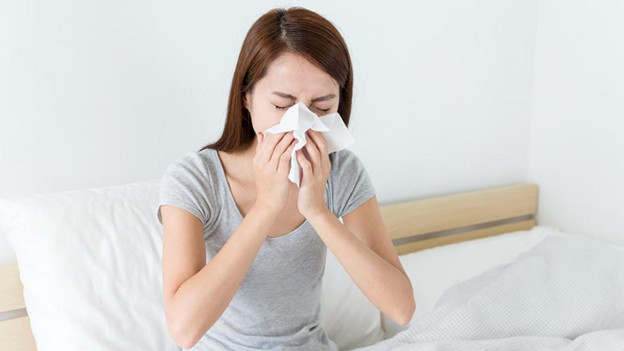Rapid relief of symptoms of allergic rhinitis in a time when COVID-19 is on the rise
Along with the disadvantages of the changing seasons, the dormant COVID-19 epidemic now risks "reappearing", making allergic rhinitis (VMDU) complicated.
COVID-19 also has symptoms that closely resemble allergic rhinitis such as sneezing, runny nose, nasal congestion. The difference is that COVID-19 can cause fever, while allergic rhinitis does not have this symptom.
About 32% of Vietnamese suffer from allergic rhinitis

Allergic rhinitis depends on the occurrence of symptoms seasonally, year-round, or intermittently. Allergens are as diverse as pollen, outdoor dust or mold, indoor dust and from animals. It is also due to common allergens when breathed, especially small particles of house dust mites. About drugs for the treatment of allergic rhinitis there are several solutions below:
- Antihistamines
- Group of corticosteroid anti-inflammatory drugs
- Leukotriene receptor antagonists
- Chromones (mast cell stabilizers)
- Nasal drops and decongestant sprays (anti-swelling)
One of the antihistamines, Cetirizin with Cetirizine active ingredient of the 2nd generation is effective in treating allergic rhinitis, and at the same time causes less drowsiness, does not affect when you are driving or working. That is why 2nd generation antihistamines are quite commonly used today.

See more product information here.